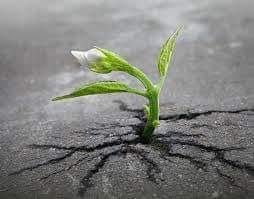Αποκριά
Carnival – By Αλέξανδρος Βαναργιώτης [English below]
--
Γέλασα όταν σήμερα διάβασα το παρακάτω κείμενο του Αλέξανδρου, μια εξέγερση ενάντια σε κάτι που για τους περισσότερους ανθρώπους είναι μια αθώα και εύθυμη παράδοση, η Αποκριά. Πολύ αριστοτεχνικά, και σε λογοτεχνική γλώσσα, με οργή και θλίψη ο Αλέξανδρος περιγράφει αυτά που ένιωθε ο ίδιος σαν παιδί την Αποκριά. Το κείμενο του και ένα μικρό σχόλιο μου ακολουθούν.
--
Αποκριά
--
Με τρόμαζαν οι μάσκες, με εκνεύριζαν οι αρλεκίνοι, με έθλιβαν οι κλόουν. Με ανατρίχιαζαν οι άντρες που ντύνονταν γυναίκες, ένα αίσθημα γελοιότητας μου προξενούσαν οι γυναίκες που παρίσταναν τους άντρες. Μα πιο πολύ αηδίαζα και φοβόμουν εκείνους τους δαιμονόμορφους Σειληνούς με τις προβιές και τις κουδούνες στα χωριά μας. Τα συγχωρεί η αποκριά, μου έλεγαν.
Εγώ δεν τη συγχώρησα ποτέ την αποκριά με τα τραύματα που μου άφησε. Κατεβαίναμε στο χωριό από το λεωφορείο και, στα εκατό μέτρα που μας χώριζαν από το σπίτι, μας συνόδευαν αρκουδόμορφοι κουδουνάδες που μας έδερναν κανονικά με βίτσες, ρόπαλα και γκλίτσες. Ανυπεράσπιστοι ήμασταν μπρος στα αιμοβόρα ένστικτα της αποκριάς, τα καλά κρυμμένα κάτω από τις μάσκες. Την επόμενη μέρα, έπρεπε να παρακολουθήσουμε στην κεντρική πλατεία τον γάμο, όπου νύφη ήταν πάντα ένας τριχωτός νταγλαράς με καλτσόν και γόβα, και βάψιμο χειρότερο από τραβεστί. Και λέω έπρεπε γιατί όλο το χωριό σχεδόν παρευρισκόταν. Το βράδυ επιστρέφαμε με λεωφορείο στα Τρίκαλα, με τη συνοδεία των θλιβερών ασμάτων του Καζαντζίδη που ήταν συνήθειο των οδηγών να βάζουν. Ένιωθα τόσο άδειασμα, τόση ερημιά μέσα μου που με δυσκολία συγκρατούσα τα δάκρυά μου. Και είχαμε και την τυπική ερώτηση του πατέρα: Περάσατε καλά; Διασκεδάσατε; Πώς να του πούμε όχι, έτσι κουρασμένο που τον βλέπαμε.
Η μητέρα μας έντυνε κι εμάς. Ποτέ όμως δεν φορούσαμε μάσκα. Ένα καπέλο του Ζορό κι ένα σπαθί θυμάμαι ή αν βρίσκαμε καπέλο με άστρο σερίφη, κρεμούσα στη μέση μου μια θήκη με πιστόλι καψουλιών. Υπερασπιστής του καλού με άλλα λόγια. Εντελώς όμως αδύναμος να υπερασπιστώ το καλό από τα αντιαισθητικά άλιενς της αποκριάς. Ξυλοφορτωμένος και φοβισμένος υπερασπιστής που δεν ήθελε να ξεμυτίσει από το σπίτι. Τώρα πια δεν τρομάζω αλλά μένω παγερά αδιάφορος μπρος στα μασκαρέματα και τα αποκριάτικα γλέντια. Μόνο οι χαρταετοί της καθαράς Δευτέρας μου αρέσουν. Δίνει μια όμορφη αίσθηση η αιώρησή τους, η πάλη με τον άνεμο και εν τέλει η νίκη όταν σηκώνονται και πετούν ψηλά κι ας είναι για λίγο.
--
Ο Αλέξανδρος μεταφέρει πολύ ωραία κάτι καθολικό που όλοι πιθανώς έχουμε αισθανθεί σε κάποια περίπτωση. Στη ζωή είμαστε υποχρεωμένοι να ακολουθούμε κανόνες και συμβάσεις, να είμαστε χαρούμενοι σε ευτυχισμένες περιστάσεις, να πενθούμε σε θλιβερές, να κάνουμε ψιλοκουβέντες σε κοινοτοπίες, να μην εκφράζουμε γνώμη για να μην συγκρουστούμε, να είμαστε υπάκουοι στα αφεντικά, να χορεύουμε όταν άλλοι χορεύουν ή να τραγουδούμε όταν τραγουδά η παρέα. Δεν είναι λοιπόν εύκολο να είσαι σε ψυχολογικό συγχρονισμό με τον κόσμο γύρω σου όλη την ώρα και μερικές φορές εξεγειρόμαστε, όπως ο Αλέξανδρος εξερράγη εναντίον της Αποκριάς εδώ
--
Every spring in Greece and before the lent that precedes Easter, there is a carnival celebrated which is a remnant of old Dionysiac celebrations of the Spring and the rebirth of life. These ancient festivals were an opportunity for poor Greeks, women, and slaves to get out of the cities and have a party in the woods, with barbeque, wine, and dance. The festival survived as a carnival in the Christian calendar. I laughed when I read the following text of Alexandros, a rebellion against something that for most people is an innocent and cheerful tradition, the Carnival. Very masterfully, and in literary Greek, with anger and sadness, Alexandros describes what he felt as a child at the Carnival. My translation is poor but the best I could do ... Translation and my comment on this follow.
--
Carnival
--
I was frightened by the masks, I was aggravated by the harlequins, I was saddened by the clowns. I shuddered at the men dressing up as women, a sense of ridiculousness was caused by the women that pretended to be men. But I was more disgusted and afraid of those demonic Silenuses (ancient Dionysian custom) with the skins and the bells in our villages. The carnival forgives them, they told me.
I never forgave the Carnival with the wounds it left me. We went to the village by bus and, in the hundred meters that separated us from the house, we were accompanied by those bear-shaped people with bells that literally beat us with screws, bats, and glitzes. Defenseless we were, in front of the bloodthirsty instincts of the carnival that were hidden under the masks. The next day, we had to attend the wedding in the main square, where the bride was always a hairy bloke in tights and stilettos, fully made up worse than a transvestite. And I say “we had to” because the whole village was present. In the evening we returned by bus to Trikala, accompanied by the sad songs of Kazantzidis that the drivers used to put. I felt so empty, so much wilderness inside me, that I could hardly hold my tears back. And we had the typical father's question: Did you have a good time? Have you had fun? How could we say “No”, when he looked so tired.
We were also dressed in fancy dress by our mother. But we never wore a mask. A Zorro hat and a sword I remember, or if we found a hat with a sheriff’s star on it then I also hung a belt with a fake pistol on my waist. Defender of the good in other words. But I was utterly powerless to defend the good from the unsightly aliens of the carnival. A beaten and frightened defender who did not want to get out of the house. Now I am not afraid anymore, but I remain coldly indifferent to the masks and the carnival celebrations. Only the kites of “clean Monday”, I like. Their swing, the struggle with the wind, and finally the victory when they get up and fly high, even if it is for a little while only, give me a beautiful feeling.
--
Alexandros conveys very nicely something universal that we have all probably felt on one occasion. In life we are obliged to follow rules and conventions, to be merry in happy circumstances, to mourn in sad ones, to make small talk and platitudes, not to express an opinion so as not to clash, to be obedient to the bosses, to dance when others dance or to sing when the company sings. But it's not easy to be in psychological sync with the world around you all the time and sometimes we revolt as Alexandros exploded against the carnival here




Σχόλια
Δημοσίευση σχολίου